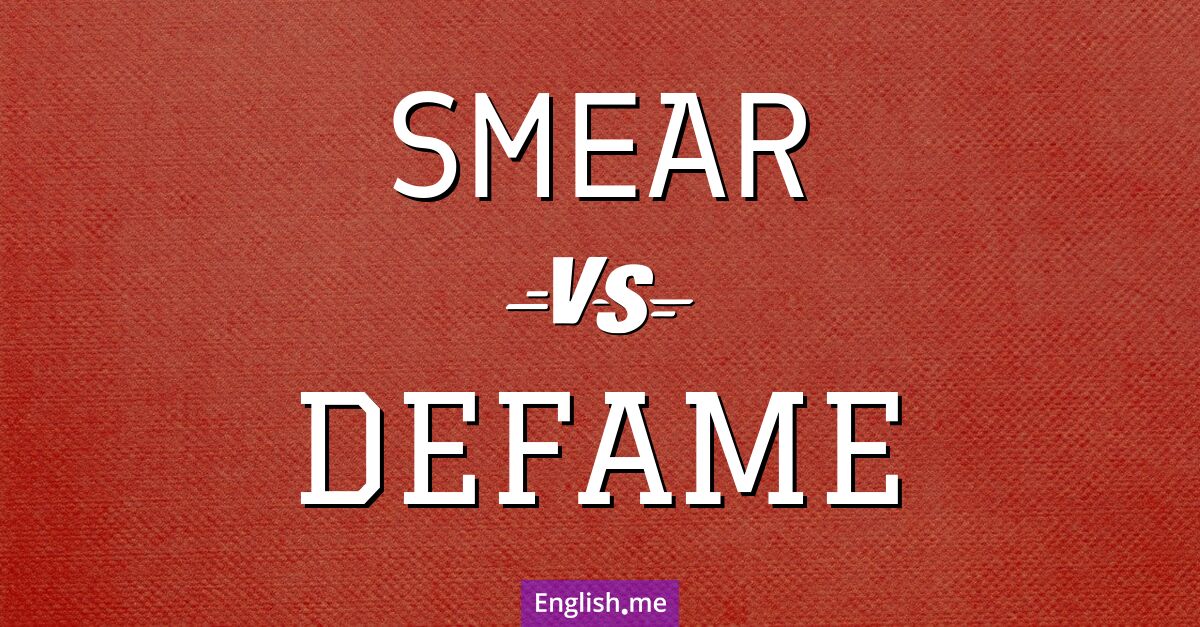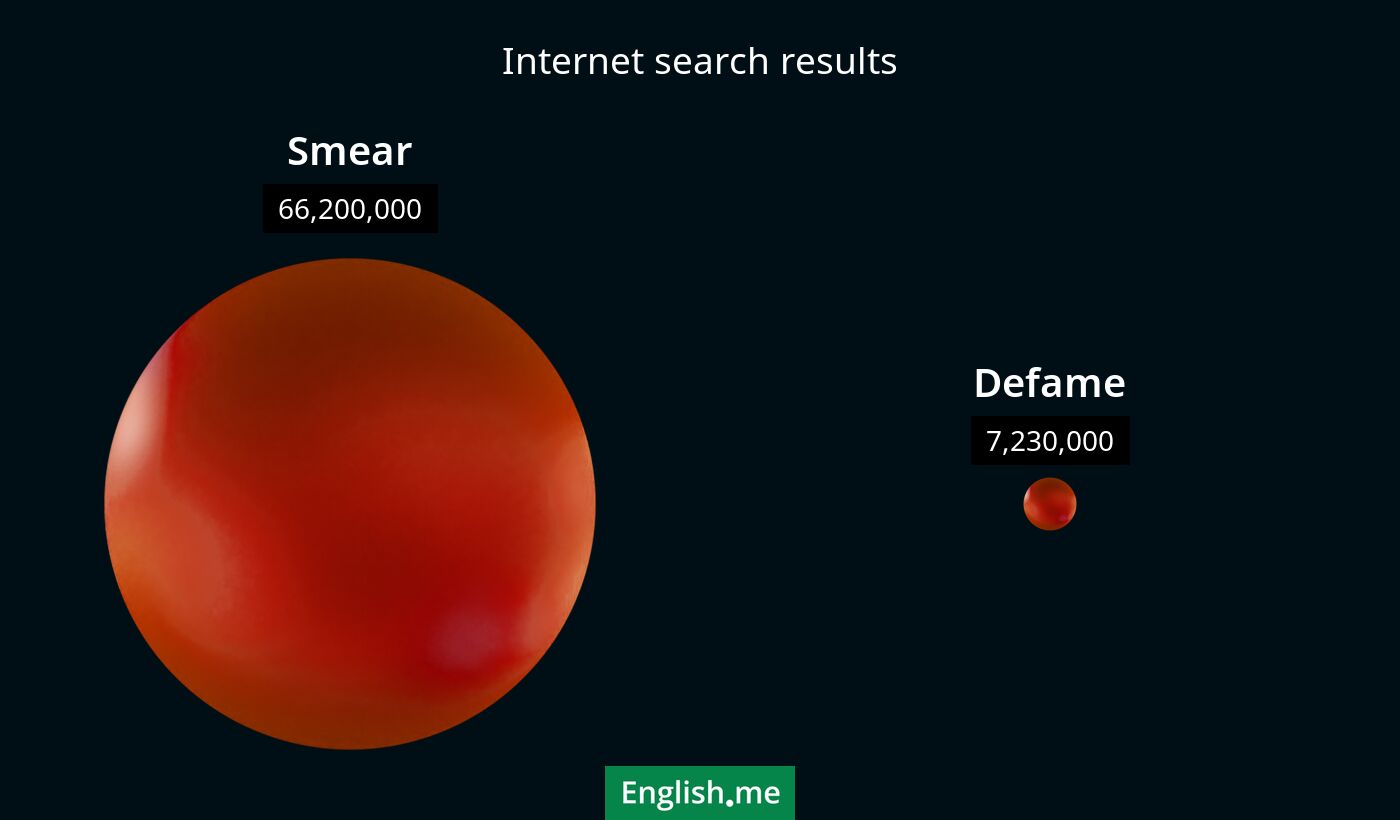"Smear" vs. "defame": a sticky situation for your reputation
Reviewed and edited by  Lloyd Cooper 22/01/2025, 13:05
Lloyd Cooper 22/01/2025, 13:05
English.me team member

 What is similar?
What is similar?
Both "smear" and "defame" are verbs that involve damaging a person's reputation through false statements or accusations.
 What is different?
What is different?
"Smear" can also refer to spreading a substance over a surface and implies a deliberate effort to tarnish someone's reputation, often informally or sensationally. "Defame" is specifically about harming someone's reputation through false statements and is often used in legal contexts involving slander or libel.
 Which one is more common?
Which one is more common?

 Examples of usage
Examples of usage
Smear- The politician launched a campaign to smear his rival.
- They tried to smear her reputation with unfounded allegations.
- The media outlet was accused of smearing the celebrity to boost ratings.
- He was accused of defaming his former employer in the press.
- The company decided to sue for defamation after being defamed in the article.
- It's unlawful to defame someone without any proof.

 English
English español
español française
française italiano
italiano deutsche
deutsche 日本語
日本語 polski
polski česky
česky svenska
svenska Türkçe
Türkçe Nederlands
Nederlands